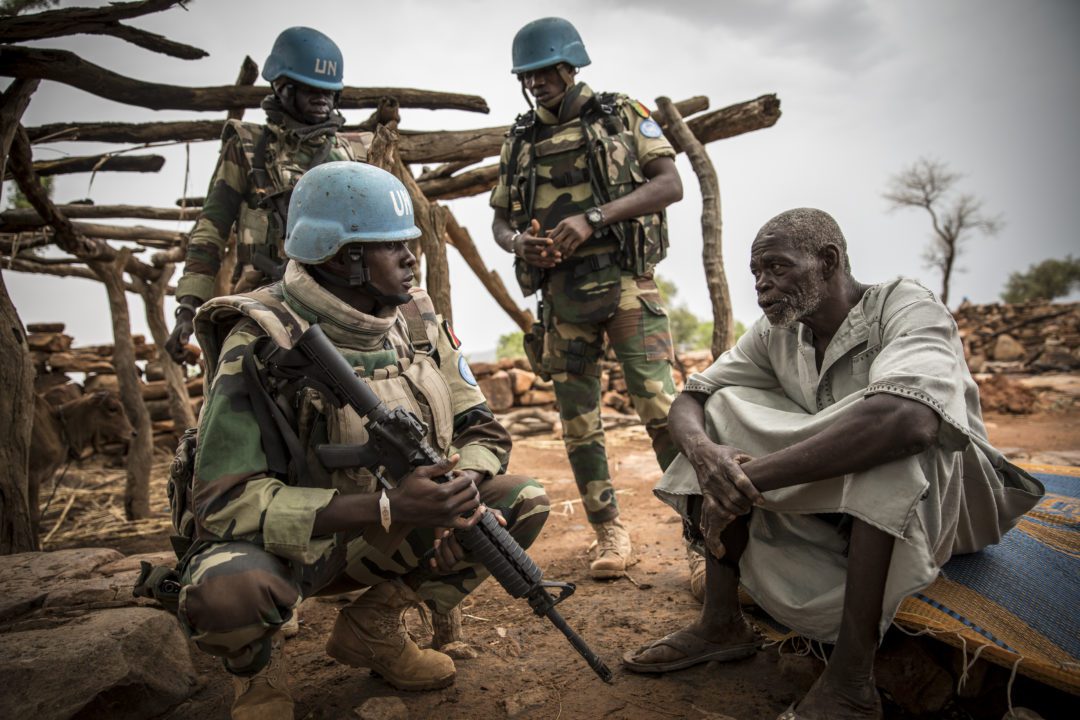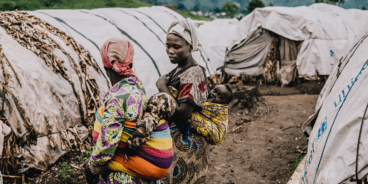

Statement on the International Day of UN Peacekeepers, 2019
Today, 29 May, marks the International Day of United Nations Peacekeepers. The Global Centre for the Responsibility to Protect pays tribute to all UN peacekeepers deployed around the world and recognizes the sacrifice of those who lost their lives in the service of peace and the protection of civilians.
The theme of this year’s commemoration is “Protecting Civilians, Protecting Peace.” Eight current UN missions – incorporating more than 95 percent of all UN peacekeepers – have a Protection of Civilians (POC) mandate. Currently the vast majority of military, police and civilian staff deployed around the world are operating in extremely challenging environments, including situations where they face ongoing attacks or restrictions on their movement. UN peacekeepers are also increasingly called upon to uphold the international community’s Responsibility to Protect civilians from genocide, war crimes, ethnic cleansing and crimes against humanity. UN missions in the Central African Republic, Democratic Republic of the Congo, South Sudan, Sudan and Mali all have mandates that specifically reference the state’s primary responsibility to protect its population from these mass atrocity crimes.
This year marks the 20th anniversary of the Protection of Civilians in armed conflict as an agenda item of the UN Security Council. In an attempt to learn from the failure to halt mass atrocity crimes in Rwanda and Srebrenica, on 17 September 1999 the UN Security Council formally added the topic of Protection of Civilians to its agenda and adopted the first thematic resolution. One month later, on 22 October 1999, the Security Council decided that peacekeepers deployed during the civil war in Sierra Leone could take necessary action under Chapter VII of the UN Charter “to afford protection to civilians under imminent threat of physical violence.” This mandate was the result of the international community becoming increasingly concerned “by the hardships borne by civilians” who had become the majority of casualties in various armed conflicts.
Despite funding cuts, peacekeeping remains one of the most effective tools for protecting populations. Today’s commemoration pays tribute to the more than 1 million men and women who have served in 72 peacekeeping operations since 1948. Today we also honor the 3,842 peacekeepers who have died while serving the United Nations. Last year, 98 peacekeepers lost their lives while on active duty, including 27 killed in malicious acts in the Central African Republic, Mali, Democratic Republic of Congo and South Sudan. In the first four months of this year alone, 19 peacekeepers were killed in malicious acts in Mali.
As we commemorate the 25th anniversary of the 1994 genocide against the Tutsi in Rwanda, we should renew our determination to ensure that today’s UN peacekeepers are better prepared to protect civilians from mass atrocity crimes. For this reason, we will continue to work with the UN and all troop contributing countries to ensure that UN peacekeepers are able to consistently uphold their responsibility to protect the world’s most vulnerable populations.
Related Publications


